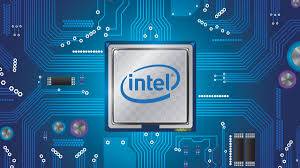
Intel CEO Pat Gelsinger and his executive team are gearing up for a critical mid-September board meeting where they are expected to propose a series of strategic divestments and cost-cutting measures aimed at revitalizing the company’s struggling business. The plan, still under development, seeks to address Intel’s declining market position by shedding non-essential businesses and curbing capital expenditures, particularly in light of the company's recent financial setbacks.
One of the key elements of Gelsinger’s proposal includes the potential sale of Intel’s programmable chip unit, Altera, which the company acquired in 2015 for $16.7 billion. This move reflects Intel's broader strategy to offload operations that no longer align with its core focus, especially as the company grapples with shrinking profits. The company has already taken steps to spin Altera into a separate subsidiary and is exploring a partial sale through an initial public offering, though a complete sale to another chipmaker remains a possibility.
The proposal comes at a time when Intel is facing unprecedented challenges, particularly as it struggles to keep pace in the rapidly evolving AI sector, where competitors like Nvidia have surged ahead. Intel's market capitalization has plummeted to below $100 billion, a stark contrast to Nvidia's $3 trillion valuation, following a disappointing second-quarter earnings report in August.
In addition to divesting certain businesses, the plan Gelsinger will present is likely to include significant cuts to capital spending, which could impact Intel’s ambitious $32 billion factory project in Germany. This project has already faced delays and may be paused or even halted as part of the broader cost-reduction strategy. Intel has previously announced plans to reduce capital expenditures by 17% in 2025, signaling a shift away from aggressive expansion in response to current market conditions.
To navigate these complex decisions, Intel has enlisted the advisory services of Morgan Stanley and Goldman Sachs, who are assisting the board in determining which businesses to retain and which to divest. The mid-September board meeting is expected to be a pivotal moment in Intel’s turnaround efforts, as the company seeks to balance investor concerns with the need to streamline operations.
Recent developments, including the resignation of board member Lip-Bu Tan, a veteran of the semiconductor industry, have added urgency to the upcoming meeting. The departure of Tan, who was a key figure in guiding Intel's strategic direction, leaves a void in the company's leadership at a critical juncture.
As Gelsinger continues to reassure investors and steer Intel through these turbulent times, the upcoming board meeting will likely set the course for the company’s future, determining which parts of the business will be shed and which will be prioritized for growth. The decisions made at this meeting will have lasting implications for Intel as it seeks to regain its footing in an increasingly competitive industry.
(Source:www.reuters.com)
One of the key elements of Gelsinger’s proposal includes the potential sale of Intel’s programmable chip unit, Altera, which the company acquired in 2015 for $16.7 billion. This move reflects Intel's broader strategy to offload operations that no longer align with its core focus, especially as the company grapples with shrinking profits. The company has already taken steps to spin Altera into a separate subsidiary and is exploring a partial sale through an initial public offering, though a complete sale to another chipmaker remains a possibility.
The proposal comes at a time when Intel is facing unprecedented challenges, particularly as it struggles to keep pace in the rapidly evolving AI sector, where competitors like Nvidia have surged ahead. Intel's market capitalization has plummeted to below $100 billion, a stark contrast to Nvidia's $3 trillion valuation, following a disappointing second-quarter earnings report in August.
In addition to divesting certain businesses, the plan Gelsinger will present is likely to include significant cuts to capital spending, which could impact Intel’s ambitious $32 billion factory project in Germany. This project has already faced delays and may be paused or even halted as part of the broader cost-reduction strategy. Intel has previously announced plans to reduce capital expenditures by 17% in 2025, signaling a shift away from aggressive expansion in response to current market conditions.
To navigate these complex decisions, Intel has enlisted the advisory services of Morgan Stanley and Goldman Sachs, who are assisting the board in determining which businesses to retain and which to divest. The mid-September board meeting is expected to be a pivotal moment in Intel’s turnaround efforts, as the company seeks to balance investor concerns with the need to streamline operations.
Recent developments, including the resignation of board member Lip-Bu Tan, a veteran of the semiconductor industry, have added urgency to the upcoming meeting. The departure of Tan, who was a key figure in guiding Intel's strategic direction, leaves a void in the company's leadership at a critical juncture.
As Gelsinger continues to reassure investors and steer Intel through these turbulent times, the upcoming board meeting will likely set the course for the company’s future, determining which parts of the business will be shed and which will be prioritized for growth. The decisions made at this meeting will have lasting implications for Intel as it seeks to regain its footing in an increasingly competitive industry.
(Source:www.reuters.com)














